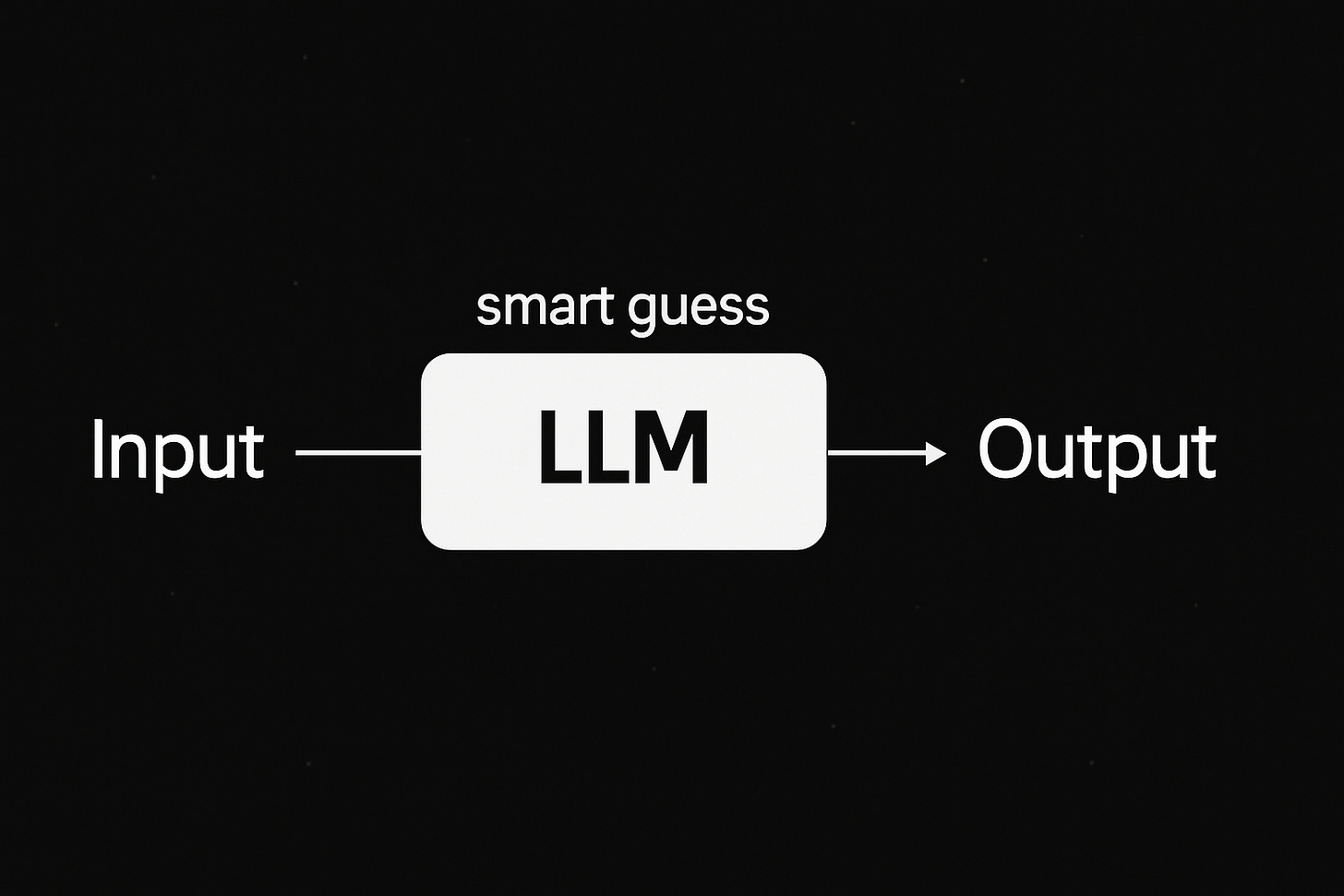AI vs Reality
Smart Guesses
I’ve known my wife for 14 years, and we’ve been married for 8. She has this frightening ability to predict exactly what I want to talk about based on my mood, complete my thoughts mid word, and perhaps most discomforting call me out on a lie with striking accuracy. Sometimes it's actually scary how accurate she is. I feel so exposed at times and I’m still working on beating her psychic abilities - so far, no luck. If you’re reading this, baby I love you.
Here's the thing though, my wife’s psychic abilities is a product of being trained on 14 years of data about me. She knows my speech patterns, what gets me excited, what I ramble about when I'm stressed, and exactly which topics I'll inevitably circle back to in any conversation. So when she makes these predictions about what I'll say or do next, her accuracy is remarkably high. Her training set is hyper-focused on one very specific subject - me.
This is exactly the promise many AI companies are now making; that AI can understand you and your business just as deeply and write marketing copy, emails, and posts in your unique voice, tone, and style, automatically. It's a compelling promise, especially for small business owners who spend hours crafting the perfect message to their audience.
So can AI guess what you want to say and say it in your voice, style and tone without coming off cringe to your target audience? The short answer is, it depends.
AI Claim vs Reality
Under the hood, Large Language Models (LLM) - the technology behind tools like ChatGPT don't think the way humans do - yet. They are prediction engines. When you interact with tools like ChatGPT, Claude, or Google Gemini, it takes your input and makes an educated guess one word at a time about what’s most likely to come next. Next time you hear someone throw around jargon like token-prediction to sound smart, this is exactly what they're talking about.
These AI models have been trained on billions of words from the best ads ever written, thousands of blog posts, and examples of how top brands communicate with customers. So when you ask for marketing copy, the AI makes a smart guess from this massive dataset to generate text that sounds good for most people in most situations.
But can it guess exactly what I want to write to my audience in my voice and tone? I decided to test this claim with three of the most popular AI tools used by billions of people globally.
I took a LinkedIn post (shared below) I'd handwritten to announce my new project Rima which I also shared in my newsletter last week—and tested whether ChatGPT, Claude, or Google Gemini could reproduce something close to it. Here's my process and what actually happened.
Original hand written LinkedIn post:
This week, I’m pausing my scheduled blog post to share a project close to my heart. Since boarding a plane to Ghana in 2017 to build my first startup, I’ve been driven by a singular mission: to create wealth in local communities. Over time, I’ve come to believe the most powerful way to do that is by helping the small businesses that power them.
I’ve been tested, humbled, and shaped by my journey so far - and now, I’m channeling those lessons into a bold new goal.
My partner in crime Gwanygha'a Gana and I just co-authored a post on why we’re building Rima. It captures the heart of our mission and the scale of the opportunity in front of us. I encourage you to read it.
Success is far from guaranteed. In fact the odds of failure are high. But I’ve never been one to follow conventional wisdom. Some calls you can and should ignore. Others feel too important not to answer. This is one of those.
1st shot:
For my first test, I gave the AI a one-shot prompt to help me write a LinkedIn post. I provided some basic guidance, and while none of the results fully captured my voice, tone, or style, I was still impressed. The output was much better than what I’ve seen from earlier versions of these models. Claude’s response stood out the most, it felt the warmest and most human.
2nd shot:
To get the AI’s output closer to my actual voice, tone, and writing style, I decided to give the models a sample of my work. I shared a link to a blog post I had written about why I’m launching the project and asked the AI to edit the LinkedIn post to match that voice. The result from ChatGPT came much closer to how I actually write and speak while the output from Gemini and Claude got a little worse.
3rd shot:
To improve the chances of getting an output closer to what I wanted, I refined my prompt by giving the AI more detailed guidance, including specific examples of what I wanted the post to cover. I also asked it to take on a specific persona to match my writing style. While Google Gemini delivered the weakest result, Claude’s response came the closest to my original post. It felt like something I’d actually write and share on LinkedIn
The Verdict
So is the claim that AI can write expert marketing copy for your business correct? Yes, but with an asterisks. The quality and usefulness of the output depends entirely on how well you guide it. In my testing, Claude performed best, delivering content that actually felt like something I'd write and share.
Remember that beyond the hype, LLMs are just prediction engines making smart guesses. So to help them make better guesses personalized to your business, you need to provide better guidance.
Pro Tip
The key to getting better outputs is prompting. There are four key building blocks to creating a great prompt that improves the accuracy of the guesses AI makes to match your desired output.
Specify the exact task
Provide context about your business/audience
Give sample examples of your writing style
Specify the persona you want the AI to adopt
In my first attempt above, I just gave the AI a task (create a LinkedIn post) and got generic results. My third attempt provided context with a sample blog post to mirror my voice and style, and specific examples of what I wanted. The output was dramatically better.
So yes, AI can definitely write marketing copy for you. But you'll need to do the work upfront to guide it properly. The smart guess is only as good as the information you provide.






